
On Tuesday, January 28, 2025, Parliament’s Appointments Committee vetted the Minister-designate for Defence, Dr. Edward Kofi Omane Boamah. Read the questions and answers below.
The nominee took the oath that the evidence he would give before the committee touching the matter in issue shall be the truth, the whole truth, and nothing but the truth.
Chairman, Bernard Ahiafor, MP, Akatsi: May you proceed to tell us about yourself.
Omane Boamah: I’m Kofi Omane Boamah, trained medical doctor by profession, married with three children, also a health policy analyst, former minister for communications, former deputy minister for environment science and technology, former deputy minister for youth and sports, also presently director for elections and IT of the NDC. For the eight years that President Mahama was in opposition, I also served as a policy advisor and political strategist to him. Thank you.
Chairman: Thank you very much. You are welcome to the vetting committee. Honourable members, we’ll proceed by taking questions from the members of the committee. It is my pleasure to start with the subject matter committee members. So, I give the floor to Honourable Amankwa Manu.
Amankwa Manu, MP, Atwima Kwanwoma: Thank you very much, Mr. Chairman. Let me take the opportunity to congratulate Dr. Kofi Omane Boamah for his nomination. And also, let me take this opportunity to welcome to this voting room some are past officers of the Ghana Armed Forces. I can see some past CDS and some serving officers. They are so welcome. Doc, congratulations once again. We all know that Article 210 creates the Ghana Armed Forces.
Now, the Ghana Armed Forces is a creator of the 1992 Constitution, charged with the responsibility of defending Ghana. We have men and women who go through sacrifices and the sacrifices they go through emanate from the kind of training they go through. We have had instances in this country where people have always asked questions about the way recruitment and enlistment into the Ghana Armed Forces is done.
If you are to look at what members go through, I mean, members in uniform, soldiers, our men and women in uniform go through, obviously, if you do not meet a certain criteria, it will be very difficult for you to really do the kind of job they do. As a minister, looking at the fact that the Ghana Armed Forces have a time-tested, laid-down processes, procedure, and the training that they go through, as a minister designates for the Ministry of Defence, looking at what the soldiers go through, looking at the time-tested training or the time-tested procedure, processes and all that, that they go through.
As a minister, would you at any time circumvent these time-tested processes and procedure for enlistment and recruitment into the Ghana Armed Forces for political expediency?
Chairman: Thank you, Honourable Minister.

Omane Boamah: Thank you, Mr. Chairman. Knowing the Ghana Armed Forces that I know, and from where I sat about 17 years ago, if you circumvent the procedures, the rules of engagement, and you get enlisted or recruited, you are likely to suffer. And there have been some dire consequences. Some recruits have died on day one. I remember at 37 Military Hospital, there was even someone who was in training. Not that the person was flat-footed, but it was almost there.
Severally, the person had to come on admission. If you have a heart condition, and the systems are circumvented, and you are enlisted or recruited, you are just jeopardising your life. And so, looking at it purely from the medical point of view, I’ll be the first person to advise you if you genuinely don’t qualify, not to attempt it. Let’s face it. I recall in 1997, when I visited the person at the academy. The person is still a serving officer, so I don’t need to mention the name. One of the first things I saw was, abandon all hopes of normal life all ye enters here.
What that means is that at the beginning of the training, you are being asked to abandon all hopes of normal life when you enter the military academy. And it is not easy. If I may add, some people go all the way to the point of being tempted, and they consider and drink water that has been used to soak clothes. Because you are tested. You are tested to the limits. That is the reality. And so, I will not, and have the assurance, that I will not circumvent the procedures. Thank you, Mr. Chairman.
Amankwa Manu: Mr. Chairman, I don’t have any follow-up questions. Mr. Nominee, we know that the West African sub-region has issues with terrorist activities. And the experts tell us that the movement of these groupings is southward. If you look at all the countries within the sub-region, most of them, except probably our beautiful country, have tasted the bitter pill of terrorist attack. The Akufo-Addo government in trying to provide security for this country adopted, as it were, two strategies.
First of all, to have Operation Conquered faced where men were sent to man our borders. And then secondly, for the long-term effect, to build the Forward Operating Bases, FOBs. Most of these FOBs are at various completion stage. And then to also deal with the issues of our waters because we also had pirates coming in. There was the need to also get long-endurance vessels for the Navy to be able to man our waters.
I know that one of the vessels is waiting for parliamentary approval. Mr. nominee, if you are given the approval, what would you do? Would you immediately work very fast to ensure that the FOBs are completed so that soldiers can move in and then see to the acquisition of these long-endurance vessels to enable our men to provide the security that we so need in this country?
Omane Boamah: Mr. Chairman, the FOBs are very critical and we may even have to consider accelerating the completion of what is already under construction and then also identify some of the border areas. We have as long as over 2,000 km stretch regarding the fringes of Ghana. And if these fighters, silent fighters who use the David and Goliath kind of a system, the asymmetry system in which they use to fight countries, are minded to attack us, they have over 2,000 km to help them to strategise.

What it means is that we need more of these FOBs but not just that. You raise the issue of the Naval vessel. It is not just the Navy that has challenges. Without exposing our armed forces too much because our neighbours are accelerating, their re-equipping. The truth is that the Air Force also needs re-equipping. I don’t want to go into too much details regarding that. So, it’s a holistic thing and in looking at this, we also need to sensitise the populace because it is not just a matter of acquiring the vessels, acquiring the equipment. The citizens must also be conscientised so that they will be able to help the Ghana Armed Forces to detect early when these incursions are being done.
And this is where I commend the appointment of Lieutenant-Colonel Larry Gbevlo Lartey as the envoy to the Sahel regions. It’s going to assist to be able to understand, help in early detection, assist with defence diplomacy whilst our Ghana Armed Forces also continue to engage them. And so, yes, will need to complete the FOBs. We will need to consider extending even the FOBs to other parts. It is not just the borders.
Even the riverine areas. There are some entry points that can also be considered. And so, you can have my assurance that together with the service commanders, the CDS, and with the Commander-in-Chief himself, we will do everything that we must do if I receive your approval to protect and defend our dear nation.
Amankwa Manu: Thank you very much, Mr. Chair. I’ll do with my last question. Honourable nominee, the Ghana Armed Forces has been going through some expansion. And one problem bedevilling the Ghana Armed Forces has to do with accommodation. The Akufo-Addo-led government embarked upon the barracks regeneration programme where houses or befitting accommodation were built in all the garrisons in the country.
Looking at the housing situation we have, would you when the approval is given, make conscious effort either to continue with the barracks regeneration programme or to make that conscious effort to provide befitting accommodation for our men and women in uniform who are doing so wonderfully well for this country?
Omane Boamah: Mr. Chairman, if you ask soldiers what their felt need is, number one, they will mention accommodation. Number two, they will mention accommodation. Number three, they will mention accommodation. It doesn’t mean they don’t have other needs. But accommodation is very critical. In fact, the deficit is beyond 15,000. If I’m not mistaken, it’s about 17,000. Efforts have been made by successive governments to ensure that this deficit is bridged. Let me assure you, several options will be considered.
The most important thing is to ensure that accommodation is provided. Even if we would have to look at the PPPs that are being done, even if we would have to draw on government of Ghana budget, even if we would have to draw on some funds that can be generated from enhancing our peace support operations to be able to help provide Ghana Armed Forces with the needed accommodation, we will do that. Thank you.
Amankwa Manu: Mr. Chairman, I will want the nominee to assure us that it will not just be accommodation, but a befitting accommodation for our soldiers.
Chairman: Please proceed to answer, but be brief with your answers.
Omane Boamah: Thank you, Mr. Chairman. It will be befitting. I visited a lot of my mates who had passed out and everything, and we saw at first hand some of the difficulties, and so we will make sure it is befitting. Thank you.
Chairman: I recogniseHonourable James Agalga.
James Agalga, MP, Builsa North: Congratulations, Honourable Doctor Boamah, for your nomination. You are a medical doctor who has practised at the 37 Military Hospital before, and I know you are abreast with the challenges that the 37 Military Hospital is faced with. Doctor, when you are approved, what would you do to improve upon the prevailing conditions at the 37 Military Hospital, and also to ensure that the Afari military hospital which works commenced as far back as when the NDC was in government previously, you’d ensure that that hospital is completed. Thank you.
Omane Boamah: Thank you, Mr. Chairman. He’s answered one part of the question, because if you’re able to get Afari on stream, it will reduce the pressure on 37. Referrals will not have to be coming from Ashanti region upwards to 37, and 37 is used not just by serving soldiers and their families, but also veterans use that. There is also an initiative that is ongoing, such that they are looking at building a new facility in Accra to take care of the soldiers, because it is believed that civilians are over-competing with the soldiers and their families at 37.
If that facility in Accra is completed, what that also means is that it can reduce the pressure on 37. Beyond that, we’ll be re-equipping the facility, ensuring that we use innovative ways of securing drugs, so that a soldier may not be on a peace mission, the spouse comes with a child, and the child and the parent may have to be sent out sometimes late in the night to go and buy medicine, and all that.
If we put in innovation mechanisms, we can reduce the budget on drugs and consumables, and then with this infrastructure, Afari, and also the one that is being considered in Accra, we will be able to limit the pressure on 37 military hospitals.
James Agalga: Doc, I think in an earlier response to a question posed by the former Deputy Minister, you spoke about Ghana’s participation in peace support operations. Now, Ghana has played a pivotal role in bringing about world peace in terms of our participation in peace support operations, but it appears the level of participation has dwindled over the period.
Now, what would you do to ensure that Ghana’s participation in peace support operations is increased? Because, you know, beyond fostering peace when we deploy our troops, it is also a matter of welfare. So, Doc, would you want to focus on this area and ensure that our participation is increased when you assume office as the Minister?
Omane Boamah: Mr. Chairman, yes. Because peace support operations in itself would be one of the innovative ways of raising funds for the Ghana Armed Forces, and there’s a lot to learn from Bangladesh, Pakistan, and India. They take advantage of the work lease system, procure fit-for-purpose equipment, send them on peace missions, but then almost every five years we’ll return those equipment to their countries and ensure that new ones are also procured.
When that is done, the task force, that’s the UN task force, that reviews the equipment that your troops are using on peace missions, get very satisfied, and they are able to reimburse you. Unfortunately, if your equipment are obsolete, you can be sure that there will come a time that you will not be having the reimbursement that you need. These are issues that we need to go into, and we will discuss them thoroughly.
Look at innovative ways of procuring equipment fit-for-purpose and also increasing our quotas so that it will satisfy the soldiers, it will improve the image of our country out there, and our Ghana Armed Forces will also be strengthened financially, technology transfer. I wish you well, Doc.
Chairman: I proceed to give the floor to Hon Dominic Niitiwul.
Dominic Nitiwul, MP, Bimbilla: Thank you very much. Four years ago, I was sitting right where you are. The only thing I can wish you is to wish you well. I sat there eight years ago, and I sat there four years ago. I wish you well. Say that you are going to a very disciplined institution. You will enjoy working with them. They are a few people that when they write a speech for you, you may find it difficult to correct. You will get a good training from them. But there are some few issues that I want to bring to your attention, true questions. The people of Ghana, including yourself, made comments.

I feel uncomfortable that I just left there and I have to ask you questions, but it’s a duty for Mother Ghana. So, I will have to do that. Ordinarily, I will not do that but of course, we are where we are. I’ll do that. It’s about the relationship between the Ghana Armed Forces and the people of Ghana. I want to find out from you how you will position the armed forces to be able to work to help keep the peace that we have, while satisfying the demand of the people that I just mentioned.
Omane Boamah: Thank you very much, Mr. Chairman. A loaded question, but I’m being prompted to be brief, so I’ll try to be as brief as possible. We need to understand the doctrine, the philosophy of a soldier. They are not trained principally to be enforcing law and order in the way that a police personnel would do. I’m very sure you agree with me that throughout your stay as the Minister for Defence, you hardly came across soldiers who were holding handcuffs.
And I’m very sure right here, that is the situation. You will hardly find a soldier who is holding handcuffs. It should tell us what their training is when it comes to even arrest. And so, we should be careful not to push them immediately there is an issue to be addressed. The police must be the first point of call. To the point that the police can do it, let’s allow the police to do it. If it becomes necessary to draw on the Ghana Armed Forces, it should be a limited operation because of the shock and awe that the Ghana Armed Forces visits, even when they get to town.
So, it should not be the norm. For instance, in the last election, we all agreed that the National Election Security Task Force was going to be such that the Ghana Armed Forces was going to be on standby until the IGP has activated their deployment. We saw some few instances where we saw military people. I believe when the IGP is done with the investigations regarding the last election, the review, we will be able to understand the mechanisms that led to this movement of troops. So by and large, it is not a yes and a no that soldiers should be kept out of it completely. But it is a matter of moderation. How do we titrate their interventions such that the dominant role is being played by the Ghana Police Service? Thank you.
Dominic Nitiwul: So, follow up. Will you deploy soldiers to fight the Galamsey, especially after the Obuasi incident?
Omane Boamah: Once again, the fight against Galamsey should not be viewed purely through the lens of soldiers going to fight Galamsey. There are several things to look at. Reclamation, providing alternate livelihood programmes, and all. When we are clear to the people that these programmes are ongoing and they are going to yield the needed results. You’ll be surprised that once you are showing people of alternative livelihood programmes, you may be able to reduce the numbers and the police may not be that overwhelmed.
But even if it has to get to the point where you have to deploy soldiers, there are several factors to look at. There are UAVs that can do some of the things that soldiers go and do in the forest and in the mining communities. You may say that, okay, the UAVs may not even have weapons. But Honourable former minister, you know that there are even weaponised UAVs. That should not become necessary.
That can be used. So once again, it is not a yes or a no answer. We need to look at fighting as a comprehensive thing, providing alternate livelihoods programmes, land reclamation, letting the police do what they have to do and if need be, bringing in the military in addition to modern technologies that can help them perform their functions. Thank you.
Dominic Nitiwul: Honourable Minister, thank you very much. As I said before, I wish you well. You would look up to the Commander-in-Chief for some of the things you say. Because it’s the only minister that the Commander-in-Chief, even though he has direct interest in more of them, it’s the only minister that every day when he wakes up, he wants to know what is happening.
But Honourable Minister, the second concern that the people have and they still have is the relationship between the armed forces and the other security services, especially the police, where sometimes you have little misunderstanding here and there and that kind of stuff. We did setup, joint training, joint operations, we set up rules for them, rules of engagement, we’re teaching, but still have slips here and there. And there’ve been massive improvements in their relationship.
I want you to tell us exactly what you believe you’ll be able to do to ensure that the armed forces and the other security services not just operate as individuals, but even at operation, they can operate as a unit to ensure that Ghana remains very safe as we see it now.
Omane Boamah: Thank you, Mr. Chairman. The collaboration between our security agencies have been very good and I will not say that we should make perfect the enemy of good. We’ve had benefits from it, but clearly, where we have unexpected outcomes, we will need to address them. The joint operations that they do can also be enhanced with joint training programmes, more of such, and not just joint training programmes, they can also have recreation together. Let’s have more of that.
If they are meeting each other, having physical training, even together sometimes, it brings them together, the bond become stronger, limits the level of competition that they may be looking at. And here, I want to raise something that may look like a paradox. When you push soldiers to more and more be performing the functions of the police, if you are not careful, you are painting an impression that suggests that the police are incapable of doing what they have to do.
That implicitly can generate unnecessary rivalry, which may manifest later as the clashes that we may be seeing. It is important to provide adequate training for the police, adequate training also for soldiers, ensure that where they need to come together, it is not just for operations, but also for recreation, also for physical training. And I believe the more we allow them to interface like this, we will be able to limit the clashes that we see, if not to eliminate them completely. Thank you.
Dominic Nitiwul: Chairman, I ask a follow-up. Will you ever consider deploying soldiers to polling stations in future elections?
Omane Boamah: Fortunately, the Honourable Former Minister for Defence once said he doesn’t deploy soldiers. So, Mr. Chairman, I don’t really understand his question. I don’t really understand his question.
Dominic Nitiwul: The follow-up is, whether you would advise the Chief of Defence Staff, who normally would deploy on behalf of the Commander-in-Chief, soldiers to a polling station in any future elections?
Omane Boamah: Thank you very much, Mr. Chairman. Under normal circumstances, it’s a no, no, no, no, no. But you see, in doing risk analysis, you cannot sit here and jump to that conclusion. What if terrorists have attacked a polling station? What do you do? So, it will be based on the risk assessment and the advice that will be given. And this is why the National Election Security Task Force, with the help of Parliament, must be given strong legal backing.
So, the rules of engagement, very, very clear, delineated actions to be taken, and who gives the command and who should not give the command. So, once we get all these ironed out, I believe that it will not even be me providing that advice, because on the day of election, I’m likely to be somewhere campaigning or ensuring that people are voting.
And that is why I should not be the person who is even, at that point, giving a policy direction that soldiers should go to the polling station. Once we get the National Election Security Task Force, clearly before us, and Parliament has a good bite at it, very deep bite at it, I believe that we will be able to address most of these challenges that we have had with the use of the military.
Dominic Nitiwul: Mr. Chairman. Yes, last question. Mr. Chairman, first of all, the nominee has assured this House that he would follow the laid-down requirements of the Ghana Armed Forces when it comes to recruitment and enlistment into the Armed Forces so that we can keep the sanity within the Armed Forces. So, I want to thank him for that, and I would hold him through the committee, whoever will be the chair of the committee on government assurance, who will hold you responsible for that statement, because we’ll follow to ensure that it has happened.

But there is a constitutional provision I want you to give me to, and to ensure that it happens. And that constitutional provision is regional balance. I didn’t say tribal balance. I said regional balance. I want to find out from you how you would ensure that in the enlistment and in the recruitment of the men and women into the Armed Forces, and by stretch, all security agencies, there is regional balance.
Omane Boamah: Thank you, Mr. Chairman. To be brief, I’m a student of equity, and we will ensure that all the principles of equity are applied to the procedures that the recruitment process follows. For instance, if somebody is in the Upper West Region, and the person is going to be enlisted or recruited, how does the person go through medicals? If somebody is in the Upper East Region, same. If somebody is in Accra, obviously, that person will have a certain advantage, because 37 is just right here. And so, we will look at all the equity principles and ensure that regional balance is attained.
Chairman: Thank you very much. In the absence of any follow-up, I will proceed to give the floor to Honourable Peter Lanchene. Honourable members, let me place on record that he’s the fourth person to ask the question. And I’ve admitted questions from them in line with Standing Order 217(2), which allows chairperson, ranking members, and two other members of the relevant subject matter, standing or select committee, persons nominated by, persons to join the appointment committee in vetting persons nominated by the president. So, they are the subject matter committee members. You may proceed to ask your question.
Peter Lanchene Toobu, MP, Wa West: Thank you very much, Mr. Chairman. Minister-designate, congratulations. You know, as well as I do, that when you are dealing with military, you are dealing with precision. And I do not doubt your meticulous nature and the fact that you must be trusted by the state. So once again, I say congratulations for this nomination. The Ghana Armed Forces has a very impressive image across the world. If this committee gives you the nod and you are finally sworn in as a minister of defence, you will love to protect this impressive image. How are you going to deal with impersonations in the system?
Omane Boamah: Thank you very much. We will rely heavily on DI, Defence Intelligence, to assist us. Of course, collaboration between the police and DI will also be very, very important. And then as part of efforts to improve military-civil relations, we will enhance the receipt of feedback from the populace such that if someone is suspicious of an individual who is portraying him or herself as a soldier, in real time, the person can launch a complaint and we address it.
And when these are addressed, the aftermath of it, the punishment given legitimately and legally given will also be made public to deter others who may want to go on the same path. And we believe that once DI heightens attention on impersonation, and the police also assist in this, and then we make the processes very transparent and the punishment thereof also obvious to citizens, people are going to be advised. Thank you.
Peter Toobu: Mr. Chairman, my second question. I’m sure during the briefing, you have heard of defence advisors. Our defence advisors carry very high our national flag, including the flag of the Ghana Armed Forces. And over the years that I’ve been in parliament, at least for the past four years, the story has not been encouraging at all.
There are conditions of service. There’s nothing to write home about. And I’m sure they are very excited to find Dr. Omani Boamah as the Minister of Defence. Should you get a note, look into the camera and tell them, what will you do for defence advisors who are struggling all over the world? Thank you.
Omane Boamah: Thank you very much. Mr. Chairman, the defence advisors play critical roles in the countries where we deploy them. And they work very closely with the Ministry of Foreign Affairs. And so, it will be a collaborative effort, of course, with the Ministry of Finance, also ensuring that they are assisted as much as they should. Their challenges range from accommodation or the way sometimes even to the daily subsistence allowance that they would have to be given.
When you demotivate them, and some of them are even generals, when you demotivate them like this, you do not expect morale to be high for them to do the kind of defence diplomacy that they should be doing. Not too long ago, I was talking about the right equipment to assist our peace support operations. Defence advisors, defence attachés in very critical countries can even work to let us have access to aid that we may never have thought of. So, we need to invest in them for them to give us the multiplier effects of those investments. Ghana will benefit from those strategic investments. Thank you.
Peter Toobu: Mr. Chairman, my last question. By my very training, when you meet a very confident person…
Chairman: Honourable Lanchene, hold it. The Deputy Minority Leader has a follow-up on the second question.
Patricia Appiagyei, MP, Asokwa: Thank you very much, honourable nominee. Congratulations. From the answer to the last question, I get the import that you don’t have a direct responsibility to ensure that they are rightly remunerated. If that be the case, I don’t think you are owning up to your responsibility to ensure that. What would you do? Because you mentioned the Minister of Finance as the one that has to see to it, but you have a responsibility to them. What would you do personally to ensure that?
Omane Boamah: Thank you very much, Chairman. Coincidentally, just when Honourable was asking, then the foreign minister designate entered. It’s a collaborative effort. And my style has always been to work together with colleagues. I’ve been part of budget processes right from 2009 to 2016. We contributed to every single budget of the President Mills and President Mahama administration. And we know how these go. You will submit the budget. The Ministry of Finance will have the final say.
But the good thing is, with the experience that we gathered for eight years, we will definitely be some of the people that the Finance Ministry will rely on. And we will persuade to the point that we believe that once they understand the benefits that you will be deriving from the defence attaches, they will respond. And it is part of the innovative financing of the armed forces that we have started discussing.
And so, you can be rest assured, I will be responsible for the soldiers and I will work collaboratively with the Minister for Finance, the Minister for Foreign Affairs, when he’s vetted, and approved. And then the Minister for Interior and all other colleagues as well. Thank you.
Peter Toobu: Thank you very much, Mr. Chairman. Minister-designate, if you appear before this committee and you are giving 100 questions that have to do with galamsey, you will appreciate the fact that galamsey is a hard-headed problem for this country. It is not just a security threat; it is both economic and social. Looking at the role of the Ghana Armed Forces from the days of Operation Vanguard to Operation Halt One and Halt Two, what do you think the role of the military will be going forward to ensure that after one year of President Mahama’s tenure in office, even the rivers will begin to speak that the country has been reset? Thank you.
Omane Boamah: Mr. Chairman, I want to rest on the earlier answer that I had given about galamsey so that I don’t over elaborate. The justification cannot be understood by anyone considering the harm that it causes. And Honourable listed quite a good number of the untoward issues that emanate from it. What sometimes we don’t even avert our minds to is that for people to elect to engage in that activity, sometimes they have to take hard substances and also that can also have its own societal effects.
That is why the idea of simultaneously providing alternate livelihoods, reclaiming lands, planting on those lands when they have been reclaimed and our soil scientists and technologists that can help heal some of these destroyed soils, even placing factories in some strategic locations to process some of their produce will begin to give a new face to the fight against galamsey. As we do this, obviously, law enforcement agencies will work together, the police, the military, to ensure that the laws are enforced.
And that is why I said, we need to also look at not just physical incursion of military personnel, but also using unmanned aerial vehicles and some of them can even be weaponised to take care of these because human beings, sometimes if they stay on these operations for a long time, get compromised. But if you dispatch a UAV, a drone, to go on surveillance and send you the exact picture of what is happening, who is going to bribe the drone? Unless maybe the one who is operating it and the digital footprints of that drone and the operations can also be known.
Should it get to the point where weapons would have to be used? As I have said, some of these UAVs can even be weaponised, but that should be the last resort. We need to quickly and aggressively get to the point where we get the people to understand that it’s a no, no, no, the environmental and the socioeconomic consequences are just too much. And I believe that with a self-purifying nature of water bodies, when we are able to do this with your blessings, within a matter of one year, we should begin to see positive outcomes from these interventions. It will be a collaborative effort, thank you.
 Peter Toobu: Mr. Chairman, I’m so grateful. Thank you very much, nominee, I wish you well. Chairman: Thank you very much. Honourable members, using the same standing order 217 (7) combining it with order 6, I will recognise leadership of the minority to ask a question. 7(7) reads, a member of the leadership of the House is entitled to participate in the proceedings of the committee during the consideration of nominees for appointment.
Peter Toobu: Mr. Chairman, I’m so grateful. Thank you very much, nominee, I wish you well. Chairman: Thank you very much. Honourable members, using the same standing order 217 (7) combining it with order 6, I will recognise leadership of the minority to ask a question. 7(7) reads, a member of the leadership of the House is entitled to participate in the proceedings of the committee during the consideration of nominees for appointment.
And standing order 6 defines leadership of the House to mean the majority leader, minority leader, the deputy majority leader and deputy minority leader, the majority whip, the minority whip and the deputy majority whip and deputy minority whip. So, I proceed to recognize honourable Habib, as deputy minority whip.
Habib Iddrisu, MP, Tolon: Mr. nominee, my question is, in your party’s manifesto, you promised to increase the daily allowances of soldiers to the UN. I think currently it’s around $35. So, what should the soldiers in Lebanon and Sudan expect?
Omane Boamah: Mr. Chairman, we have soldiers in several places, Guinea-Bissau, Abyei, Gambia and all. They should be rest assured that President Mahama has four years and whatever promise that has been given will be worked on to the satisfaction of all stakeholders. Thank you.
Chairman: Honourable Habib, do you have a further question?
Habib Iddrisu: Okay, Chairman, the nominee’s introduction, when you asked of his self-introduction, he said he is the director of elections and IT of the NDC. My question is on the Electoral Commission. The Electoral Commission that declared President Mahama and declared the 275 members of parliament. Have you, 275, one is not declared yet, 275. Mr. Chairman, my question is, have you ever described the EC as criminals, incompetent and biassed? And if yes, why?
Omane Boamah: Thank you very much, Mr. Chairman. Yes, incompetence, basic arithmetic. The EC serially got it wrong. The criminality, people were transferred from their polling stations to different regions, not even within the same region without they appearing to transfer. Bias, there were several times that we raised issues that we felt could have easily been addressed.
And sometimes as I watched after December 7, people struggling over seats, I said, look, if the Electoral Commission had listened to us and had dealt with the free pink sheets that were floating, we may not have had these issues on our hands. But obviously the EC would not even listen to us. As we speak, we requested for a forensic audit of the voters register and the IT system of the Electoral Commission. They never agreed. So, incompetence, basic arithmetic, they were getting it wrong.
The criminal aspect, to transfer people from their polling stations to different places in a different region. And when we brought this out and we asked them, they said, oh, we had not activated the liveliness test. So, you knew you could activate a liveliness test. And they said, oh, it was because at the time that the procurement was done, the liveliness test was not that mature.
But if they could activate it just when we identified and put out the information, what stopped them from doing that? And so, trust me, I have very good friends in there, but whenever we had to do our job to ensure that the right expressions were used, we did it. But the beauty is that it was never personal. Beyond doing our jobs, we continued very good, friendly relations.
In fact, sometimes it pains me that when our general secretary petitioned parliament, earlier, I think somewhere April, 2024, parliament did not take the necessary steps to investigate the Electoral Commission. If that had been done, we all may not have gotten to that point. But it looks like the malaise is when you are in government. You act as if the electoral commission is anachronistic and sacrosanct. I pray and hope that my party in government will not suffer that same disease. Thank you very much.
Habib Iddrisu: Chairman, I have a follow-up to this. Doctor, how will you describe a beneficiary of a criminal incompetent in a biassed institution?
Omane Boamah: Your question is unclear because I decided to provide reasons for each of them. Incompetence. I decided to segregate incompetence and I said even basic arithmetic. And it’s quite unfortunate that Honourable Habib is inviting me to maybe denigrate my own friend, Jamesa. How do you use coral draw for arithmetic?
Afenyo-Markin: Chairman, Chairman, with respect. I want to remind my respected friend, Dr. Omane Boamah, that he is on oath. I can also understand that it is your desire to give a detailed explanation by way of response to questions. But let me be quick to remind you. You have a duty in answering to be mindful of the third party who may suffer certain consequences of your response, which at this material moment may not have an opportunity to defend himself or herself.
Suffice to state that in a political statement, one may choose to be very loose. But here, in an attempt to defend a political statement, let’s be careful. I know a number of NPP folks who this morning joined this table to say that Dr. Omane Boamah is our brother. He’s our brother. And they expect a certain posture from their own caucus. If that is to be expected, then something must give.
Chairman: Honourable Ranking Member, thank you very much. I believe this caution should not go only to the nominee before us. The questioners must also be circumspect in asking the question. So, if you ask the question, the nominee has provided the answer, and you push for a follow-up question, I would allow the nominee to give a follow-up answer. So, I was even drawing the questioner’s attention to the fact that be careful where you are going off camera. But you didn’t take a cue. So, proceed to ask your last question.
Habib Iddrisu: Chairman, I take cue from what my leader has said. But I don’t think my question was out of place. If a nominee has described an institution of that nature, and I want to find out why he described it as such, I don’t think I was out of place. You indicated that you are the Director of Elections and IT. And now you are going to occupy a very important office. You’ll be the minister responsible for defence of our country. Do you intend resigning your position as Director of Elections and IT so that you can be impartial in handling the affairs of defence in the country?
Omane Boamah: Thank you very much, Chairman. Chairman, no Ghanian should have any fear about my impartiality. In fact, I can be the chairperson of the Electoral Commission, and I will be impartial. That’s my nature. Trust me. And my deputies are here with me. Whether I was going to be appointed or not, I took up the job of the Director of Elections of NDC purposefully for the 2024 elections. Immediately after the elections, I told them my job was done. Amongst us, we even discussed, and we know who we’ll be proposing to the Functional Executive Committee to take over from me. Thank you.
Habib Iddrisu: Chairman, I’m done, and I congratulate you.
Chairman: Thank you very much. But let me place on record that Article 78 of the Constitution of the Republic of Ghana is very clear. A minister can appear before a committee or parliament to hold office of profit. So, if the party constitution so allows, and that minister has appeared before the committee to hold a political position of profit, there is nothing basically wrong about it. But always we ask, will you resign? Will you do this? It doesn’t lie in our hands to demand a resignation of the… So, I’ll give the floor to Honourable Jerry Shaib.
Ahmed Jerry Shaib, MP, Weija-Gbawe: Thank you very much, Mr. Chairman. Doc, congratulations to you. I’ve recently perused a document which the UN, as of July 2019, had indicated that the current reimbursement rate of soldiers deployed to go on missions received about $1,428 per person. In Nigeria, it’s about $600. In Kenya, it’s about $756. I’ve indicated you weren’t listening. In Ghana, it’s about $435. First of all, do you know about this and what accounts for the differentials? And if at all, what plans do you have to have this resolved? Thank you.
Omane Boamah: Thank you very much, Mr. Chairman. Not the entirety of the other countries that you mentioned. What I know is we pay $35 daily, and I think the figure per capita is about $1,400 plus. As I’ve indicated, peacekeeping to countries like Bangladesh, Pakistan, and India is serious business. They use it to finance their army, and I believe that with defence industries taking shape, some of that can go into it. Be rest assured that we are going to take advantage of the work lease system.
To take advantage of it would be to even do some retrospective study on what we have done with the resources that we have received so far. There are complaints about late releases, when troops are supposed to even go on mission. These are all matters that we would have to address. It will be a comprehensive process and programme, and I believe with your endorsement, if I become the Minister for Defence, I’ll come back to Parliament to brief you details about where we are. Even regarding equipment, as I alluded to, the Ghana Armed Forces can benefit from equipment.
Ghana Armed Forces in Ghana can benefit from the equipment that we procure through the work lease system, because all you have to do is to use that equipment for about three to five years. You can bring them back home, procure new ones, and so long as you are taking advantage of economies of scale, have we gotten to a point where maybe we will have to do some joint procurements? The police procures. Army does the same. Isn’t it possible for us to take advantage of economies of scale?
Equipment that both are likely to be using, or if we are to be looking at brands, for that particular brand, if we went to that brand, we can take advantage of economies of scale. And so, it’s a comprehensive thing that will have to be done. And it’s not also just about what is going to the soldiers. If we are able to reduce the amount that we spend on maintenance, and it will be a paradox that if you do the maintenance more frequently, you are likely to spend less in the long run than to allow the equipment to get to terrible states before you say that maybe you are going to ensure that maintenance is done.
And so, give us the opportunity to serve, and we will look at peace support operations comprehensively and put before Parliament, because it will be an international agreement, new ways that we can take advantage of the PSO programme to generate the needed income for our nation, to motivate our troops, and also to equip our country for us to be able to protect our territorial integrity.
The post Appointments Committee Vetting of Minister for Defence Dr. Edward Kofi Omane Boamah (1) appeared first on The Ghanaian Chronicle.
Read Full Story



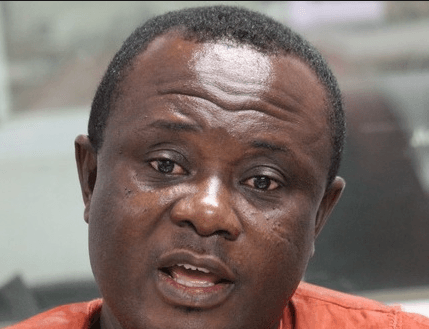
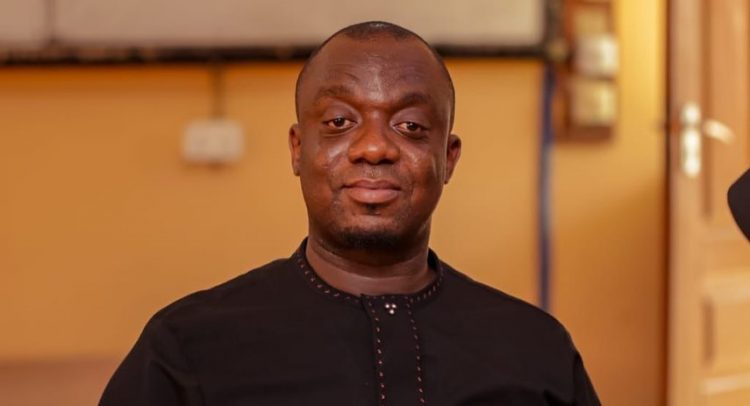
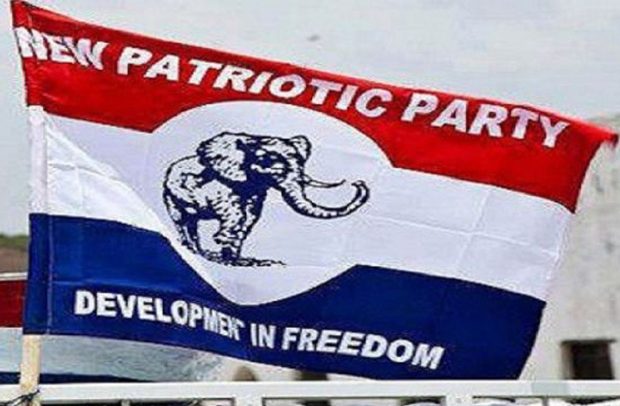
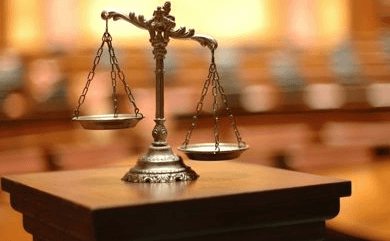

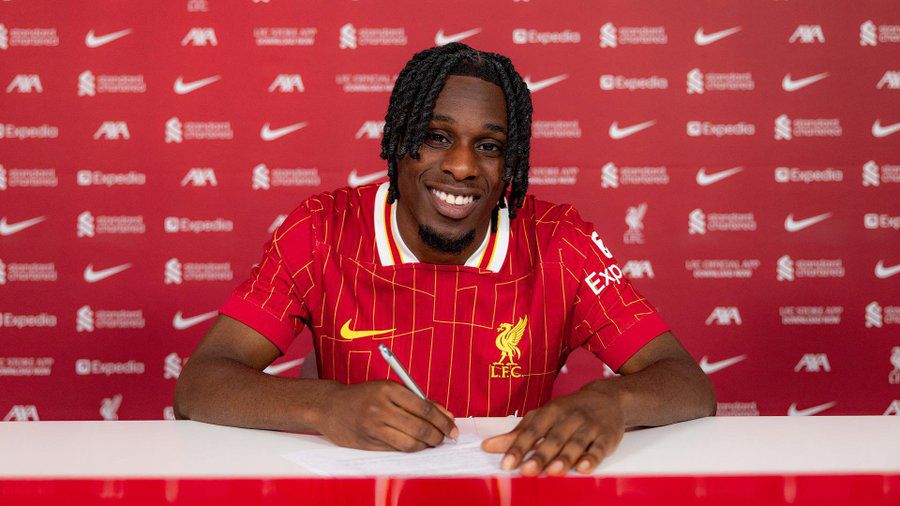

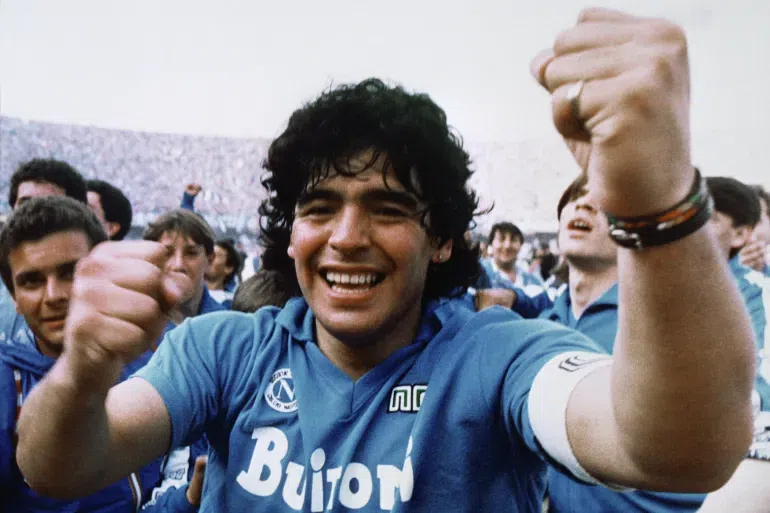

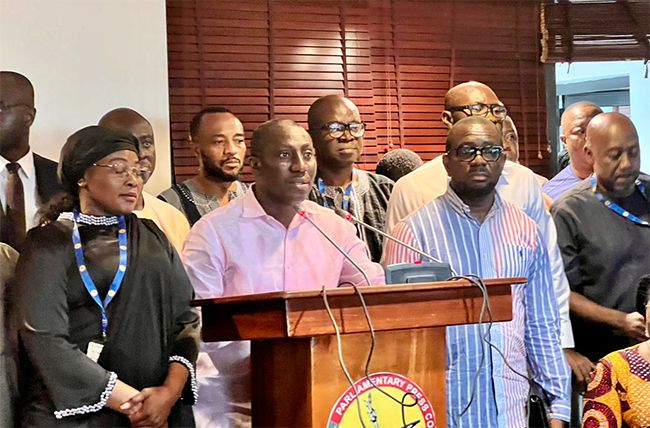
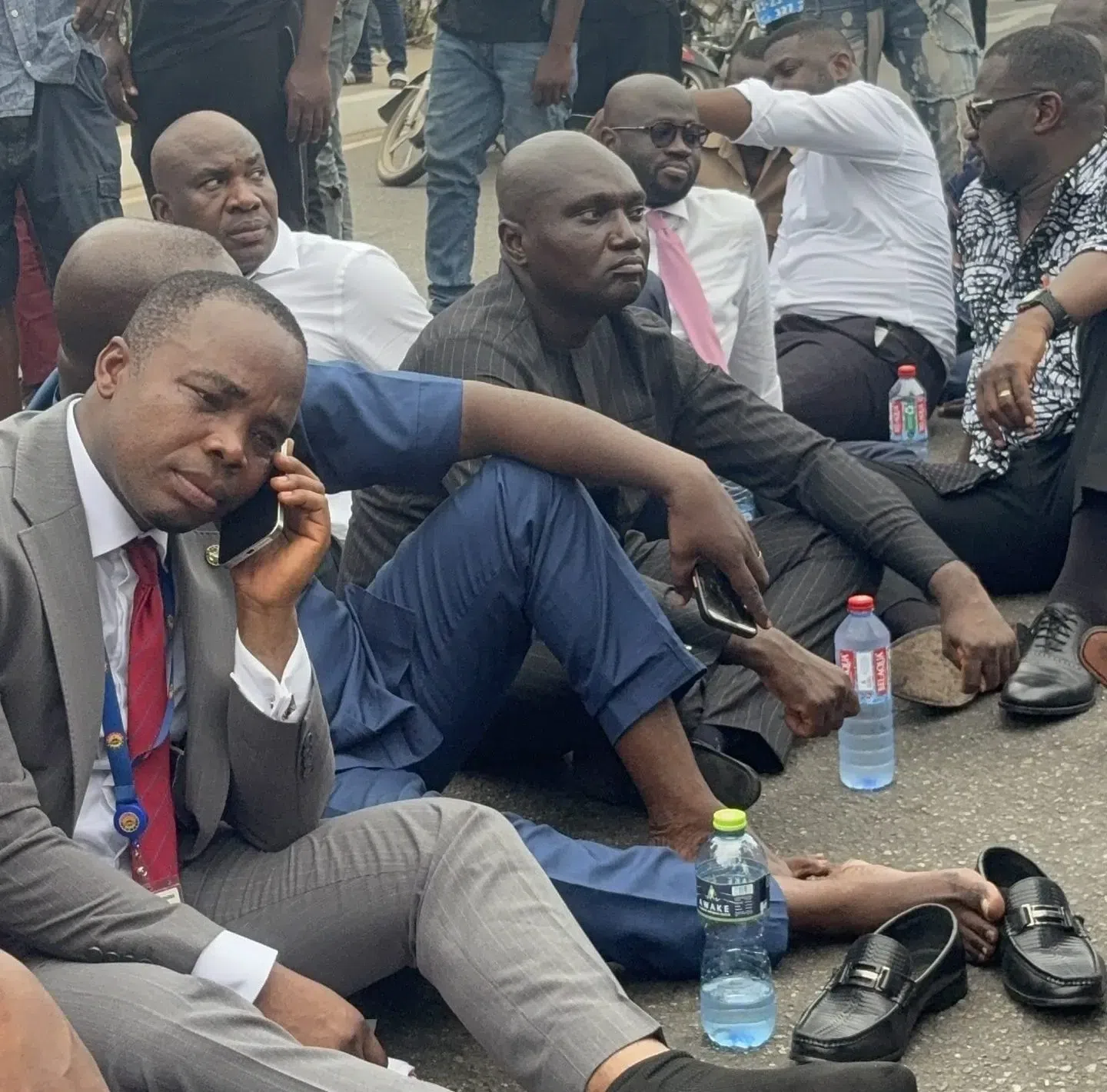

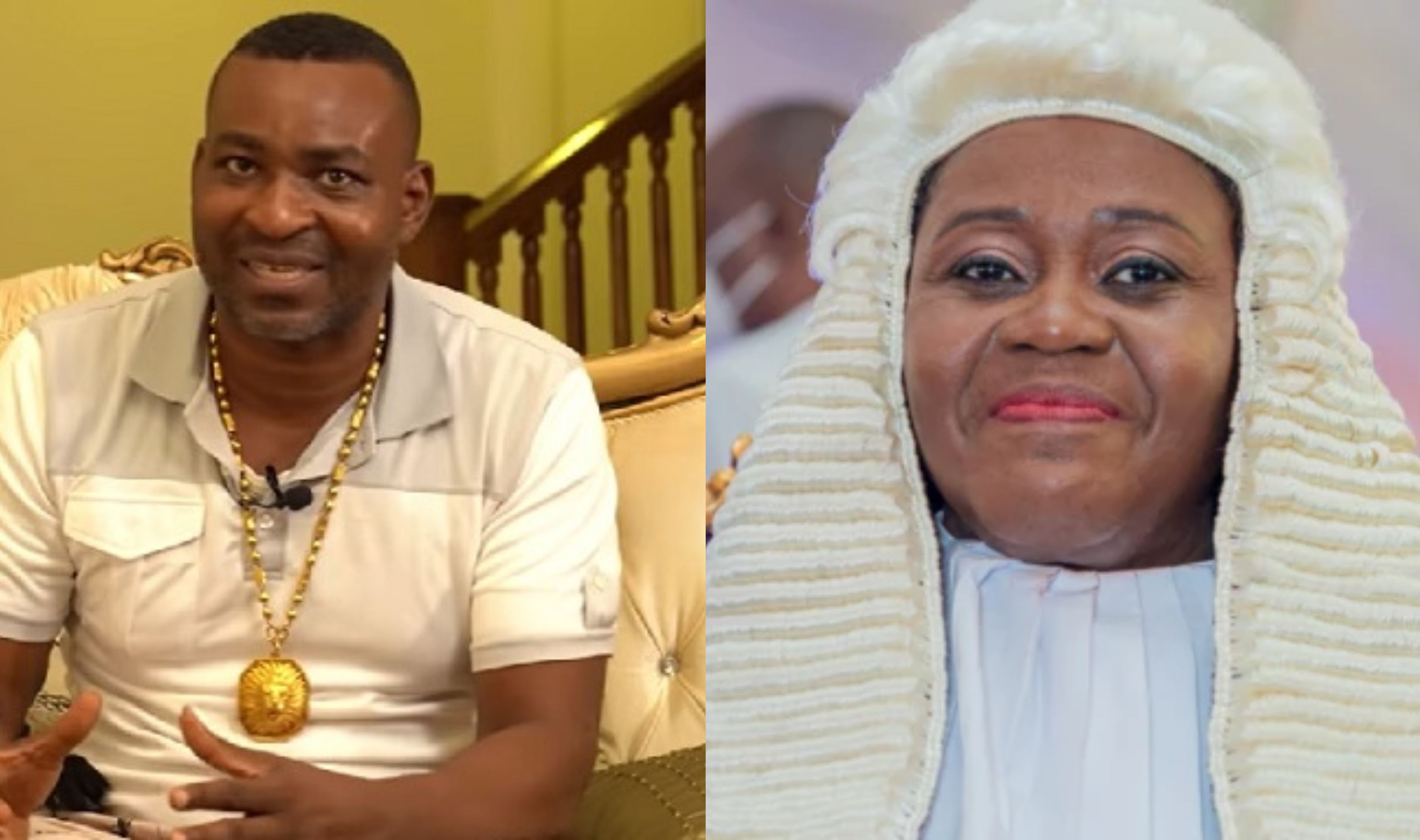
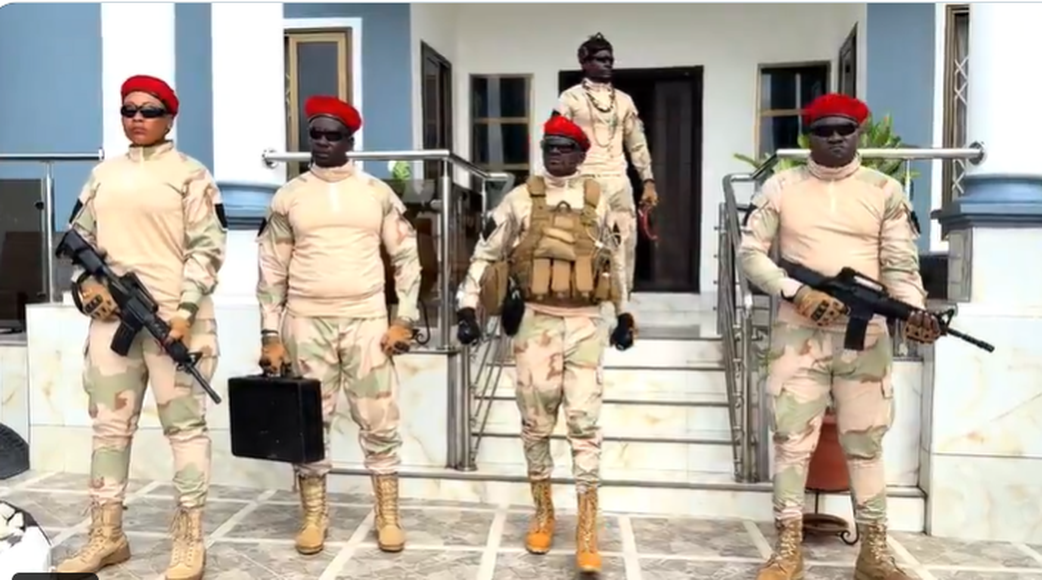



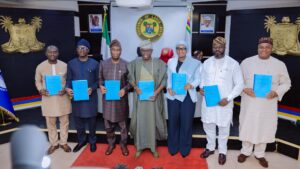
Facebook
Twitter
Pinterest
Instagram
Google+
YouTube
LinkedIn
RSS